Renewable Energy: Correcting Some of the Myths
Windmills and Solar Panels aren’t the END of Fossil Fuels
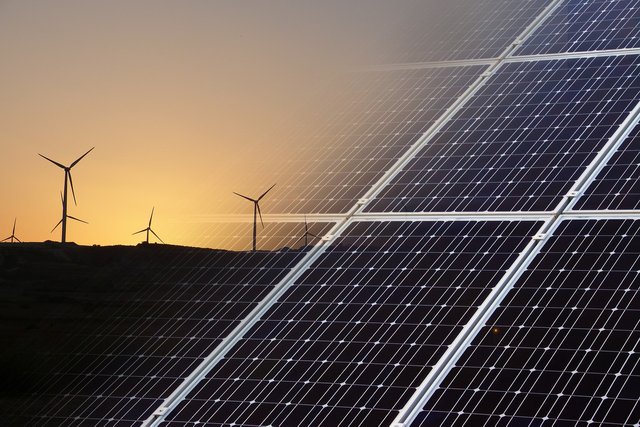
Driving through Iowa earlier this week, I spotted a wind farm on the plains mixed in with the corn and soybean fields that dominate the Iowa landscape. Of course, the topic always comes up about renewable electric energy and how it is leading to a cleaner and more sustainable Earth. While this is partially true, I would be remiss not to point out the realities of people’s expectations and general lack of understanding how electric energy, power grids, and energy use on the whole actually operate.
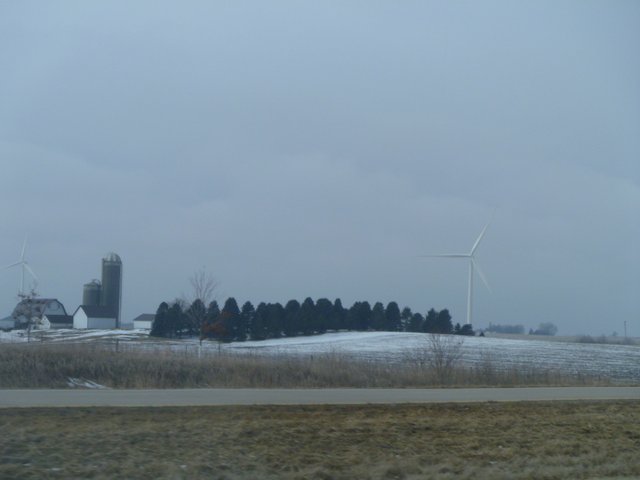
Let me start by making a disclaimer: I am PRO renewable energy. I like clean air and clean water and I believe providing electricity and energy is the single best way to improve people’s lives globally especially underdeveloped areas. This post is based on my knowledge as an energy analyst/economist and the opinions I express are based on facts not “feel goodism”. If this offends you, I’m sure there is an article on rainbows and unicorns somewhere on internet for you. This post is to dispel myths and create a constructive dialogue and not designed to anger anyone (except maybe SJW’s).
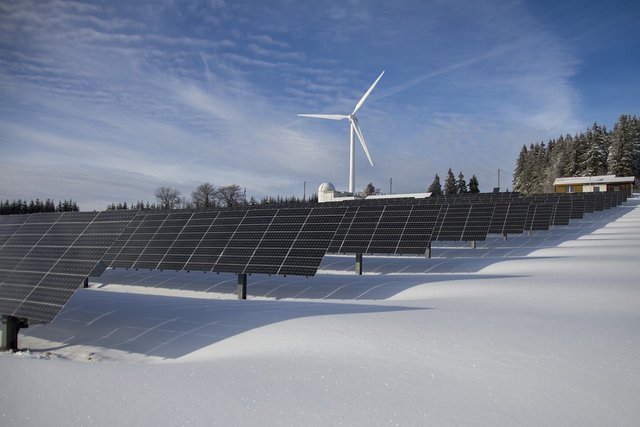
The advancements in wind and solar energy grab a lot of attention nowadays. It seems like every time Elon Musk’s name is mentioned, people get all giddy and excited about the prospects of eliminating fossil fuels. The current technology and the prospects for future innovations in the arena of wind and solar are fantastic, but they will only mean a reduction in our dependence on fossil fuels such as oil, natural gas and coal. They can’t and won’t replace these fossil fuels without some assistance in other areas of renewable energy and those sources appear to be many decades away from prototypes, test trials, and eventual adoption.
Some Harsh Realities Regarding Renewable Energy Myths
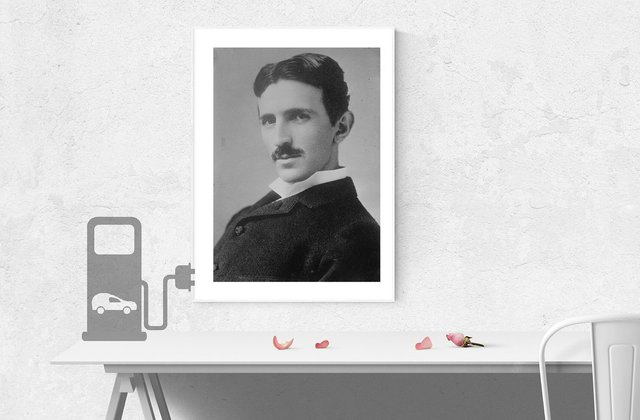
Electric Cars will replace gasoline/diesel engines – Yes and No.
There will be a reduction in the amount of gasoline/diesel automobiles as new electric cars become more affordable and plentiful. We’ve seen the headlines about London and other cities “outlawing” fossil fuel cars by 2050. It sounds good and I’m sure it buys votes. However, there are some serious issues confronting electric cars.
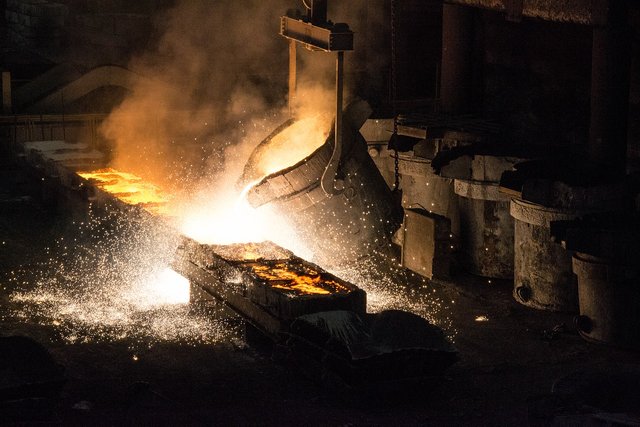
The materials to make the batteries are finite resources in and of themselves. Where will we get all the materials to replace the 100’s of millions of vehicles? Will we then need “renewable materials” for our renewable energy vehicles?
How will we make these vehicles without steel, other metals, and plastics? Without fossil fuels, none of these materials is possible. Sorry, but your windmill can’t heat iron ore sufficiently to make steel. We will still need coking coal.
How will we make enough electricity to charge all these car batteries? Windmill and solar panel companies can beat their chests all they want, but they can’t meet demand consistently now. How are they going to “fuel” 100’s of millions of vehicles? The answer is that they aren’t: fossil fuels and nuclear will be providing the electricity for your “non-fossil fuel” vehicle.
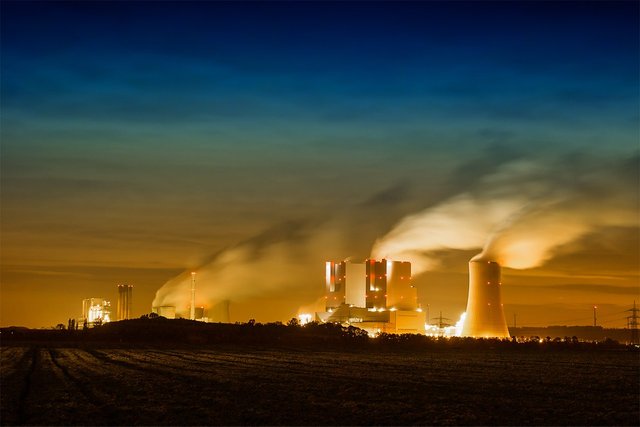
Windmills and solar panels are awesome and will replace the need for fossil fuel power plants. Again, Yes and No.
The headlines tell you great stories like “Germany relied solely on renewable for a whole 3 hours” or “Chile has more solar energy than it can buy.” People really need to read the fine print in these articles because while they are “accurate” on the surface, it doesn’t tell the whole energy story. Here are some issues with renewables and the electric grid.
Electricity produced from wind and solar is still much more expensive to create than electricity from natural gas, nuclear, and coal. We can all stand high on our horse and talk about saving the Earth, but when push comes to shove most people in most countries are going to elect the most affordable solution to meet their needs. So, while I’m sure that the 2.5 billion people who are deprived of consistent electricity can admire Europe’s “Green” stance, they don’t give a shit. They want lights and heat. Here’s something to consider: India’s Prime Minister, Narendra Modi, campaigned on a slogan, “Renewable energy to light a lightbulb in every home.” (emphasis mine) Not Internet, Healthcare, Affordable Housing, World Peace, or any other gobbly gook, BS slogan – A lightbulb (singular). How will India achieve this? Some renewable energy, yes. But mostly coal because it’s affordable.
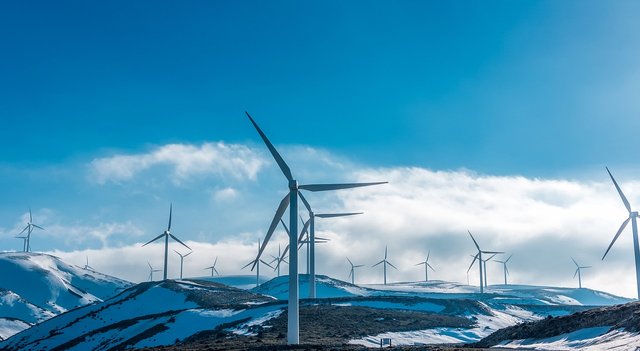
Wind and Solar aren’t consistent producers of electricity. If the wind is blowing and the sun is shining, it is great for renewables. Unfortunately, the wind doesn’t always blow and the sun doesn’t always shine. So, if we close down that coal or gas fired electric plant, what will happen? Well, businesses will have to shut down operations, schools will be in the dark, and you won’t be able to watch Game of Thrones. Even in Germany, where they have a large amount of renewables that feed into the electrical grid of the country (and even larger subsidies totaling over $200 billion), there is a need to keep other forms of electricity online to generate what is termed, “baseload capacity”. Essentially, this is the amount of constant energy that must be passed through the electrical grid in order to keep it stable and meet the demands of consumers. Renewables just can’t do that at this point. Germany gets about 33% of it's electricity from renewables.
Market problems plague renewables also. In the last several years, businesses in Chile have invested huge amounts of money into solar energy. The results have been good as far as production goes. However, during the sunniest times of the year, the amount of electricity generated is exceeding demand and not just barely. It has created a glut, which has driven prices down to near zero. This sounds good on the surface, but who wants to invest money in a power plant or solar farm that can’t get a return on investment. The worry now is that additional renewables projects will be abandoned due to “poor market” conditions. Oh, by the way, Chile still generates most of their electricity by burning coal. Renewables account for only a fraction of total electric energy.
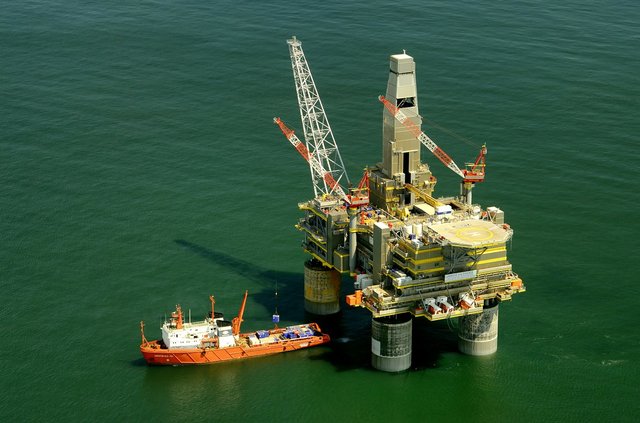
We should just make laws against using fossil fuels.
It sounds good, but it isn’t practical because - Production and Transportation of Manufactured Goods Fuel the Global Economy. People need to ask themselves how things are made and how do we get the things we love to markets where we can buy them at affordable prices BEFORE we start making laws that limit our ability to meet consumer needs. Manufacturing requires a great deal of energy most of which is in the form of electricity. So, the plant that makes your $1000 iPhone needs electricity to run the show. All the components to make your super-duper smart phone have to be mined, fabricated, and then shipped to that Chinese factory. Many of the ingredients come from as far away as Africa. Upon completion of that phone that can do nearly everything except shoot down “SCUD Missiles”, it must be shipped again to markets. This goes for Tesla’s, energy efficient lightbulbs, and even windmills and solar panels.
- Energy efficient products are still using fossil fuels in their production. The iPhone factory isn’t running on renewables. It is running on a variety of energy sources, but primarily coal. That Toyota Prius is also soaking up Terawatts of electricity produced by natural gas or nuclear. Even the “Earth-saving” Tesla is built with metals made from coking coal.
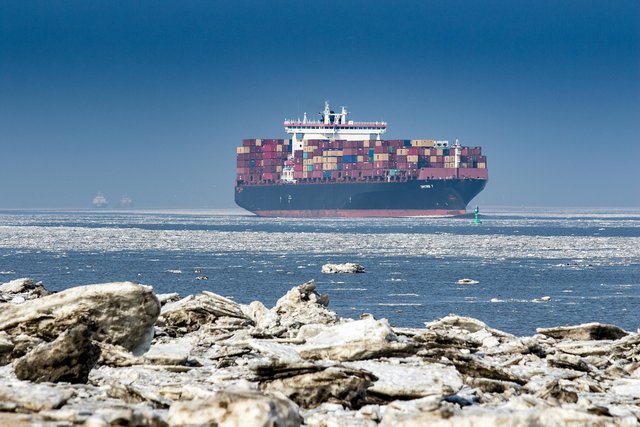
- Getting goods to market requires the use of gigantic steel ships that run on diesel fuel. While the size of these vessels continues to get larger, which does create some net-fuel savings, they still require huge amounts of fossil fuels to operate. Furthermore, these vessels require fossil fuels to build them. Next, you have trains, trucks, and cargo vans that bring these items closer to market. The same rules apply to them. Unless we want to go back to wooden sailing ships, fossil fuels are necessary to keep our world running.

We are going to run out of fossil fuels and if we don’t have a replacement, we are in deep trouble.
Yes, of course we will eventually run out of fossil fuels. One indisputable law of the universe is that all things have a beginning and an end. That being said, we will not run out of fossil fuels in the lifetime of any person reading this post or that person’s grandchildren (most probably their great-grandchildren).
"The wells are running out!" For many decades, people have been subscribing to a theory called Hubbert’s Curve. It runs very much like the Malthusian theory of food production. Both of them are complete nonsense and like the Chicken Little – Sky is Falling story, they lack a fundamental understanding of how humanity addresses shortages of necessary goods and innovating for survival. Historically, people have always developed alternatives long before they were desperately needed. These innovations were most often market driven. As oil and natural gas have become more difficult to extract, technology has advanced in a way that has changed the difficulty level. Some recent examples of this are horizontal drilling, hydraulic fracturing (aka fracking), and 3D Seismic exploration.
Well replacement for most oil companies is a huge priority. Not because they hate the Earth, but because they exist to make a profit and those profits rely on new materials to extract, refine, and sell. It’s a huge business and very competitive the world over.
The shale oil revolution in the U.S. and Canada has changed the level of North America’s dependence on imports as well as changing the direction of oil prices to bring them down considerably over the last few years. However, the shale deposits in North America such as the Bakken that have had such a huge impact are a fraction of the size of a shale formation in Russia called the Bashenov. Russian companies have hardly touched these deposits yet and they still export the most natural gas and the 2nd most barrels of oil in the world. Add to that the offshore projects in the Sakhalin Island area and the Arctic and the Russians will be producing for 100 years plus easily. Additionally, the Chinese and Iranian fields are under-developed as well. Iran has the largest natural gas reserves in the world and they aren’t even exporting yet.
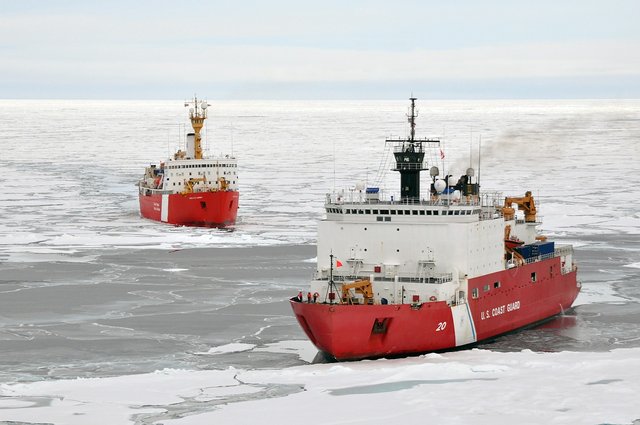
Oil and gas companies don’t care about the Earth, the environment or its people. This is totally false and those that believe it are victims of CNN style vitriol that helps nobody. Have oil and gas companies done some shady shit? Absolutely. So have chemical companies, automotive companies, pharmaceutical companies, etc. No industry is immune. I could write a whole series of articles on the environmental catastrophes directly or indirectly caused by the “good guys” of the World Health Organization, the United Nations, the U.S. EPA, and various governments of the world. Before you run out screaming about environmental damage done by oil companies, you might want to research the topic of bird migration patterns and deaths from windmills and solar panel arrays as well as the ecosystem damage. There are improvements to be made to protect the environment and our general health across the board. Targeting the fossil fuel industry alone is counter-productive.
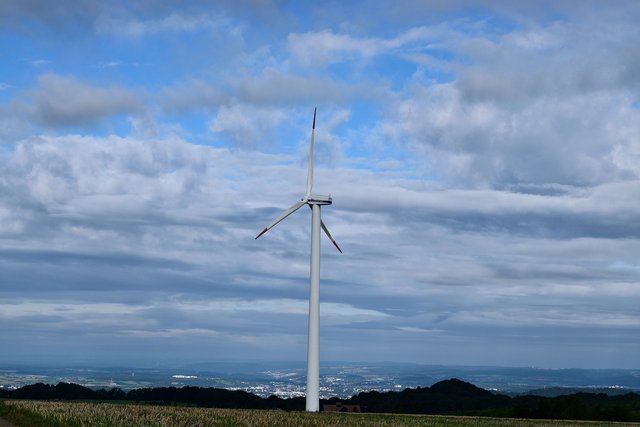
Conclusions and Considerations
Renewable energy is great. I’m ecstatic at the progress that I’ve seen in my lifetime (born in 1970) in the renewables sector. We are making great progress on a number of fronts and not just with wind and solar. There are some other amazing developments like using spent nuclear fuel rods infinitely, hydrogen fuel cells, and even “blue energy” which harnesses the reaction between clean water and salt water. Like I said before, this is very cool stuff.
Additionally, every year we develop the means to extract, refine, and use fossil fuels in a cleaner and more efficient fashion. We also have been developing ways that we can use fossil fuels and their by-products for other materials that create a net benefit to society such as uses of bitumen, plastics, and a plethora of other products.
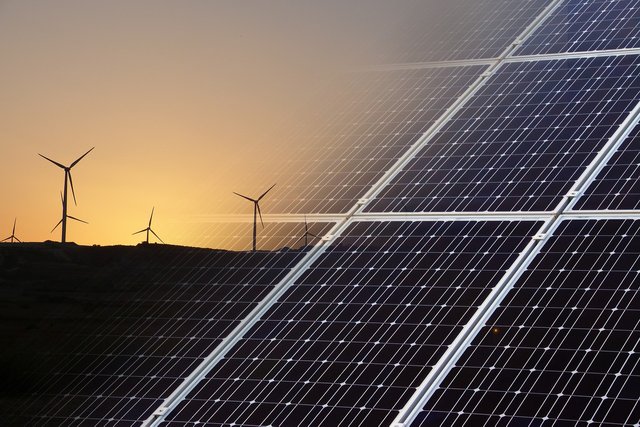
Whether these improvements can be attributed to the “green energy” movement or by the need for businesses to maintain/increase profitability is debatable, but in the grand scheme of things it doesn’t matter why. The important thing is that we are becoming more efficient with our energy use. This may seem slow to the average person, but the “leaps” in technology are noticeable.
I hope we will continue to see tangible improvements in the energy sector especially in the area of renewables, but I think we are being quite delusional in thinking that the fossil fuel era is or should come to an end anytime soon. Therefore, our energies need not be spent on vilifying certain industries, but rather working on innovating improvements and developing competing technologies.
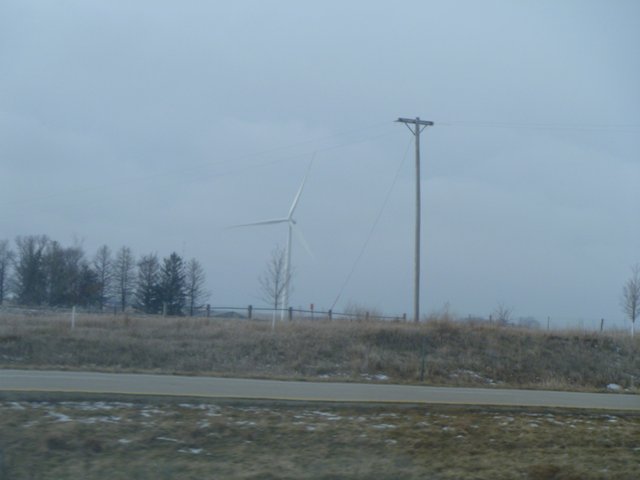

Sources: Too many to name after so many years of study, but none of the information is terribly hard to find. Google is a good place to start.
Want to learn more about energy use globally and locally? Try these:
International Energy Agency (IEA) – Especially their graphs on Total Primary Energy Supply (TPES)
Oxford Energy Institute
Energy Research Institute of the Russian Academy of Sciences (ERIRAS)
U.S. Energy Information Administration (EIA)
BP and Shell websites and annual reports – BP is the best of the two.
Like this article? Please resteem, upvote and comment.
Don't like it? Comment and tell me why. Let's discuss it.
All intelligent comments get an upvote for effort (even if I disagree).
Send me a copy of one of your posts and I will try to read it quickly.
All photos are mine or downloaded from Pixabay.com.
Follow me on:
Facebook - https://www.facebook.com/jr.byers.58
VK - https://vk.com/id185155240
Discord - energyaddict


That was a REALLY fascinating read...and a great reality check! Very enjoyable too--you kept my interest with the examples and the humor. "that phone that can do nearly everything except shoot down SCUD Missiles" hahaha :)))
Thanks so much for the comment! I'm glad you liked the humor (sometimes I worry).
A good post that looks beyond the surface. I can't claim to understand many of the facets of either side. I do know that had it not been for Germany incorporating oil into their navy we probably would never have had the large demand we have for it today. England was unwilling to allow their naval dominance to be challenged, and of course others had to follow suit.
I do not understand the logistics involved, but I do know here in Az where I currently live it is usually sunny with little to no clouds. Solar is huge here, and I have often wondered what the logistics would be of storing the excess and transporting it elsewhere.
I am really going to expose my ignorance here with this question. Given that saturation points can be manipulated by changing pressure, is there a reason that the energy harvested from a windmill as in your example could not be applied using a change in pressure to melt the iron ore? I am sure this might be a very ignorant question, but in my limited knowledge I am unsure why this couldn't be applied somehow.
Thanks again for reading and commenting on one of my posts. I can't thank you enough for the thoughtful comments. 1st thing regarding the distribution of electricity - Many achievements on sending electricity further along power lines and through power grids have helped in recent years. This is especially true with offshore wind. However, storage of electricity still remains the biggest problem with renewables as batteries are heavy and bulky and don't perform as well as we would like. Tesla's batteries have been huge in breaking through this barrier, but we still have huge challenges in getting electricity from remote areas to populated areas. This would definitely be the case in Arizona at least to some degree.
2nd thing - This is a great question and I'm not a chemist or engineer so I can't speak to the answer 100%, but while it is possible to use electricity to smelt ore, it is highly inefficient in both energy use and cost at this point in time. This is one area where we (humanity) need some breakthroughs in technology to overcome the hurdle. The biggest drive is not in changing the fuel but changing the product to a competitive alternative. That is, that we see a lot of effort in making substitutes for steel for many products in order to reduce the demand. Of course, none of these alternatives have come along far enough to be a viable substitute for the time being.
Hope this was a good answer to your questions. Perhaps another reader will have some expertise in this arena that might be of help.
Hi to both of you @energyaddict and @practicalthought, first of all thank you for your great article with which I agree in most of the points outlined there but where I just missed something to the storage ...and yeah now in your answer to that comment you come back with this point.
And this storage thing is the key to a successful implementation of the renewables as a baseload backup. But unfortunately, storage means not only a battery system like you comment before.
There has to be a more or less complicate combination from many parts like battery systems, fuel cells, a hydrogen generator with adapted large storage units and maybe if the area is good for a water repository. With a well-balanced solution of this foresaid components there will be a huge possibility to solve a lot of this problems what is addicted to the unsteady load from the renewables.
We presented with one of our companies in 2012 on Hannover Messe in Germany a first part of this solution and now 6 years later companies will take notice on and ask for systems to implement in their own plants. There is a lot of players in the market and a lot of money, so normally this must lead to a reasonable solution.
And when this happens, we will se that in conclusion with Solar- and Wind energy it is possible to generate the needed energy (that’s possible today, when there is more plants), store it if not needed at the moment, and bring it back to the grid in less than 5 seconds with scalable units just like a normal coal-, oil- or gas fired base-load energy plant from the old economy giants.
So not only I believe that its possible there are a lot more clever people (mostly engineers) who do so, at least it will be a matter of time and will to change not of knowledge or money and we can first adopt this systems to help out and then more and more change from the old systems to those wo will work also green together with the renewables who generate the energy for the demand.
I hope my English is good enough to explain what I mean and for your understanding as I´m a native German and my English probably is not the best for this specific term.
Sunny greetings from Andalusia
Don Thomas
Thanks for your comments and yes, your English is perfectly understandable. I am extremely hopeful that we will continue to improve and implement better storage capabilities so that base-load problems can be contained. Of course, there are a great many well-funded companies (with incredibly smart people) working on these solutions. However, a transition even when these technologies come online will be difficult to come by quickly. The costs of retrofitting existing infrastructure is difficult. A great example of this is the heating systems in old European cities with "radiators" for heat. We have had the technology for 5 decades to change the system of pumping hot water into homes to keep them heated and yet these antiquated methods are still being used. Another example are phone services in the U.S., which for some reason still contain "dead zones" of cellular coverage in populated areas. Just because the technology exists doesn't mean that the transition will come quickly. Keep in mind that the U.S. is the richest country in the world and it still hasn't adopted best available technologies in many areas. It is one of the many reasons that we will NOT move away from fossil fuels in my lifetime or my children's lifetime.
Thank you for your kind reply, in addition to my comment before and your new one let me say the old Oil-league is also not coming up in just e few years it took decades to bring them where they are today.
So it´s silly to expect the renewable will do change market in a few years but actually there is a huge offer in GWh all around the globe and it´s getting more and more each day.
The only thing what has to be solved is the bottleneck in adapting smart storage solutions to existing renewable plants in the first line. In the second line there must be a transformation of the technologies in the fueling sector for cars (refers also to hydrogen).
Solutions for performing the grid online with this mentioned system are already in the market, so I and my kids believe that we will se bigger steps in this direction in the next decade and the following one´s
With sunny greetings from Andalusia
Don Thomas
In Germany, you will probably see a great deal of improvement, but you won't see the end of fossil fuels. Too much has to be done in the way of transport and manufacturing to get rid of these yet. And Germany will be in the lead because they have made it a huge priority. The rest of world will follow, but not quickly.
In Germany, you will probably see a great deal of improvement, but you won't see the end of fossil fuels. Too much has to be done in the way of transport and manufacturing to get rid of these yet. And Germany will be in the lead because they have made it a huge priority. The rest of world will follow, but not quickly.
Sorry @energyaddict22 for not responding to you, but I thought I had answered already -oops but it wasn´t so- ! Sorry again for that.
So far regarding your reply in first yes maybe the Germans will see some greater movements, but they lost a lot of their leading manpower in special mostly the heads and their teams who moved to Asian or American companies and so the had to focus for a longer timeframe since 2013 to bring up again such genius humans who help them and their think tanks to step ahead. There was a big lack of founding and educating in this high technology fields where the Germans a few years before where leading in the world, but this is history and if you won’t keep in mind that others are also hungry and get good human resources you have to start the race again if you will come back to your former position.
I agree with you that the end of the age of fossil fuels is not near in the next 10 maybe 20 years, but with more capital spend in R&D and more focusing on scaling in technologies which has a positive impact on the energy disaster.
Still I don’t believe that they can held their position in the green energy sector, I guess we had to look also to some of the southern European nations like Spain and Italy.
Spain has huge terrains where its suitable to built large plants for solar as well as wind, and they are willing to handle this, they´ve done it before from 2004 to 2009 and then made their mistake to suit the investors with breaking their own law -this will not happen again-.
Italy specially the Island of Sicily is producing more energy from the renewables than they need for their island, so the export to the mainland, and there is also a lot of space where more plants can be erected (also in both fields solar and wind).
Next there must be mentioned for sure the Asian countries like 1st China and then Japan and the next big player India they all ride for more than 10 years this wave, investing incredible amounts of money in education, technology and infrastructure. Building one after one new bigger and better production facilities for solar and wind and even for batteries and electric cars.
In 2006 we negotiate solar facilities for India with an output from 20MW, today they are building solar power plants with more than 1GW with mostly own produced modules, and the Chinese Manufacturing capacity has grown so fast that the prices dump for about three years and their quality had reached a level which is not less than that from the Germans.
And in the Industry for battery cars the Chinese and Co. (including India) are since more than 5 years the leading manufactures but nobody from the industry nations had taken notice from for long time. And if there will not be some guys like Mr. TESLA Elon Musk then these guys will dominate this sector also. They have the biggest fleet of Battery cars and bikes worldwide, they deliver complete power stations, complete wind- and solar- parks, huge battery systems and also fuel cells.
As you know, and you see from my comments there is a hard way in front of all of us and if all work continuously on this we will solve this issue for sure in the next 2 decades.

And if not we all than maybe the Asians alone will run this and get the benefits from, we will see. Oh yes the americans also are on a good way, what about the russians i only know about som solar activities at the border of the black sea.
wiht sunny greetings from Andalusia
Don Thomas
This is really great info on Renewable Energy . Thanks @energyaddict22 for sharing this great post. :-) #livesustainably
My pleasure @andyjim. Thanks for taking the time to read and comment. I really appreciate it.
Good post and nice read :) I'm happy to find you here on Steemit since I'm also pro-renewable energy and it was one of the first tags I looked into! I agree with everything you said. But I insist in the idea that governments need to give a little push to renewables because it will drive the market to make them more and more competitive. We really want to shape the market, drive it artificially to suit the needs of the society.
Same happens with batteries and the Tesla fanboys. What they're doing now will not change much and it's definitely non-sustainable. It just won't work in a large scale. But they're shifting scientists's and manufacturer's focus into creating new, better, cheaper and more eco-friendly batteries that can really be a better alternative not only to developed countries but also for the developing ones!
Thanks for posting on here also so we can continue our discussion from your post. I hope that we can share articles like yours and mine that we find on Steemit and grow our community of renewables/energy enthusiasts.
I agree that batteries are better than diesel and gasoline fumes, but the resources needed also lead to problems in sourcing them. That is my major concern. Eventually, will car components (batteries included) become so expensive that only the rich will be able to afford vehicles? I think the automobile industry will overcome the pricing hurdles faster in the near future than wind turbines and solar panels, but how long before we start seeing a decline in battery components? Just a thought.
I believe demand for cheaper batteries will give a huge push in research and development (I believe that is already happening). The one manufacturer who can get a patented better, cheaper, durable and safe battery will have a major advantage in the market. There is a run for solid state batteries like never seen before...
I'm also into free market and I believe it will regulate itself... At least I hope so!
Very much enjoyed your article @energyaddict22!
I have a bit of first hand knowledge I would like to toss out.
I'm a
So I said all that to say this...
I totally agree with your points made in this article.
Thanks for posting it nonetheless. Now I have someone to reach out to when I need a quote or some specific info on the U.S. energy grid.
You got a 41.12% upvote and resteem from @ebargains courtesy of @energyaddict22. Thank you for using the @ebargains UPVOTE and RESTEEM bot.
If you are looking to earn a passive no hassle return on your Steem Power, delegate your SP to @ebargains by clicking on one of the ready to delegate links:
50SP | 100SP | 250SP | 500SP | 1000SP | 5000SP | Custom Amount
You will earn 80% of the voting bot's earnings based on your delegated SP's prorated share of the bot's SP pool at the end of EACH voting round! That is over 38.5% APR! You can also undelegate at anytime.
your post nice i up vote you i request to you pleas visit my blog support and up vote me.
Hello Dear Steemian,
I am S.A.R.A.H. (Search Automatically High Reward Articles) Bot.
I'm an artificial intelligence that automatically looks for posts that expect high rewards. I recognize such posts, make my upvote on them and get a high Curation Reward. If you want to join in, you can hang on to my curation trail. You can follow me on Steemauto or on Streemian.
If it looks like this you are doing it right:
Let's maximize our curation rewards together!
Yours,
S.A.R.A.H.
You have received an upvote from @nicestbot. I am an automated curation bot trying to make minnows happy.